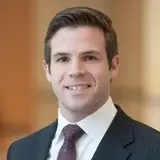Ujima Fund Investor Report Interview: Alua Aumade
- Boston Ujima Project
- Jul 6, 2022
- 3 min read
July 6th, 2022 -- Young. Black. Investing. This quarter, we sat down with a group of Ujima Fund investors under 40. In each interview, they unpack their investments, personal experiences and underscore the importance of collective work and responsibility.

Alua Aumade is from Texas and has put down roots in New England. He works in healthcare finance and is interested in ethical real estate investing. He likes creating unique experiences by bringing people together over food and the outdoors.
Tell us about yourself.
I’m originally from Texas, and I work in healthcare finance. More broadly I’m really interested in bringing people together through unique experiences. For instance, I’d love to host a dinner for my friends in the middle of the desert. Whenever you go to some of the national parks out west, you don’t see a lot of Black people, unfortunately, in these amazing spaces. I love food and cooking creatively, so this is something I’ve done in bits and pieces, but I’m trying to put it all together.
How did you first hear about Ujima?
I first heard about Ujima from Nia K. Evans around 2018. She told me about the importance of community-oriented investing, which I love. So I was 100% down to learn more and get involved.
Are you an avid investor?
I’ve dabbled in stocks and cryptocurrency a little bit, but real estate investing is where most of my interest lies. So I bought a multifamily property two years ago and I’m looking to buy a second property this year. Honestly, I’m really trying to get out of the rat race through real estate investing, but I’m also trying to make sure that I’m contributing to solutions for the housing crisis, rather than making it worse.
Why was it important for you to invest in the Ujima Fund?
At the time, I actually didn’t know of other meaningful ways to get involved, besides investing. I invested because I believe in Ujima’s mission, but [I] didn’t know of other options that made sense for me at the time.
What does being a young, Black investor mean to you?
Being a young, Black investor means paying attention to a long-term strategy that contributes to Black wealth. So even though the Ujima Fund isn’t my only investment, it’s important for me to participate in political experiments like this.
In what ways has the pandemic inspired you to question your investment practice? Have the past two years revealed any changes you want to live, work and invest?
In terms of real estate investing, I heard rent increased 15% over the last year. I think it kind of dipped slightly last year, or maybe 2020, just because that was a pandemic. But still, learning this was alarming.
My multifamily property has tenants. It’s really important for me to keep my rent under market rate, so I can support the family that lives there. Because I kept the rent affordable, this family is now able to buy a house of their own.
While other property owners might be annoyed by them moving out, to me it’s phenomenal. I have other opportunities to make money in real estate investing, but fewer opportunities to create affordable housing. This is something I’ve become acutely aware of since the pandemic.
After the 2020 uprisings, there was a lot of talk about investing in the Black community and Black entrepreneurs. From where you sit, are companies following through on their pledges to invest?
I haven’t looked at these commitments super closely, but I have a lot of friends that work in the D.E.I. (diversity, equity, inclusion) space who are closer to these issues. I know there’s much more awareness around how to operate businesses in a way that’s more welcoming to Black people, but some of it feels performative, so I don’t put a whole lot of stock in these corporate attempts to be more equitable.
What would you want to see happen in the future?
I would love to see stronger commitments to resource Black committees and companies, beyond the token Black person serving as Chief Diversity Officer. Within companies, I think there needs to be more Black people in middle and upper-level management, and in other roles that are critical to business functions.
What are you most looking forward to when it comes to the future?
I’m really looking forward to getting out of the nine to five rat race. Once I do that, I think I’ll have more emotional energy [and] time to pursue some entrepreneurial endeavors, and experience some personal growth.
Any final reflections?
I really appreciate that Ujima is an organization that goes beyond the talk about what can be done for the Black community and actually puts resources into executing on solutions.

.png)


